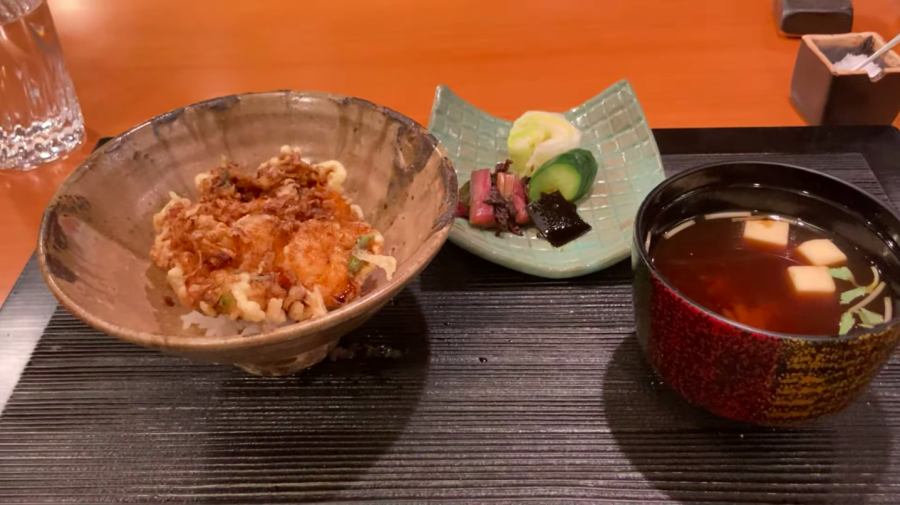
The famous Japanese TV show “The Solitary Gourmet” starts with this line: “Regardless of time or society .. to eat freely … is the best comfort given equally to every man.” The connection between these words, “society”, “eat”, and “comfort” was always left vague. However, this restaurant enlightened the perception of this uncertainty and into a relatively new form of bliss.
Among faceless, nondescript apartment buildings, a red banner written “Watatta Hanten” pierces the monotony. Welcome was expressed by an all-white dressed man smiling, conveying a warm atmosphere that eases the anxiety of entering a foreign and new space. Far different from typically chic modern restaurants, jazz soundtracked with neutral tones on the walls and fancy lighting, this restaurant instead has old wooden tables and chairs, and a small TV screen hanging above the counter.
Pretentious and stylish, this place is not; familiar and homely it is.
There is no specific menu booklet; instead, the options are written on a wooden board affixed to a, putting it politely, not unblemish-free wall: The specials are as expected in Japanese-Chinese restaurants: Udon, Soba, and Ramen. Some strangers hide among the specials. Omelet rice is a sort of Western-style dish and is well-complemented by a kara-age(fried chicken) with a mayonnaise sauce side. The juicy, just-right chicken jiggles with a thick, crispy cover of batter, hiding the soft flesh. The sauce neutralizes the salty-oily chicken with a perfect sweet piquancy.

The omelet rice builds on the success of the chicken. This Japanese invention of supposed Western food at this restaurant looks surprisingly different from its typical Tokyo iterations: uniform blankets of egg meticulously shaped over rice. At this eatery, draped over a bed of moist ketchup-infused rice, the indeterminable-shaped omelet is unevenly spread with sauce; it looks like it should be a disaster but is instead a triumph. Once sliced, the parceled egg steam releases delicate tomato aromas. The sweet but salty hot rice defrosts senses and tingles taste.
The homemade food now forms a harmony with an unpretentious but comfortable space. The loosened atmosphere allows not only children to be their benign selves but also adults. Their most casual clothes express familiarity rather than formality. The sound of laughter and turned-on broadcast spread with the fresh wind blowing from the narrow gap of the glass door, grimly neglecting any chance of awkward silence.
All senses are stimulated to submerge into instant tranquility by the absence of judgments. It is truly the finest freedom to relish a dish without a bit of interruption from the fierce society that embraces more of a performance of perfection than accepting of imperfection.
And here, every man is destined to enjoy this freedom, being one’s most true version.



















































